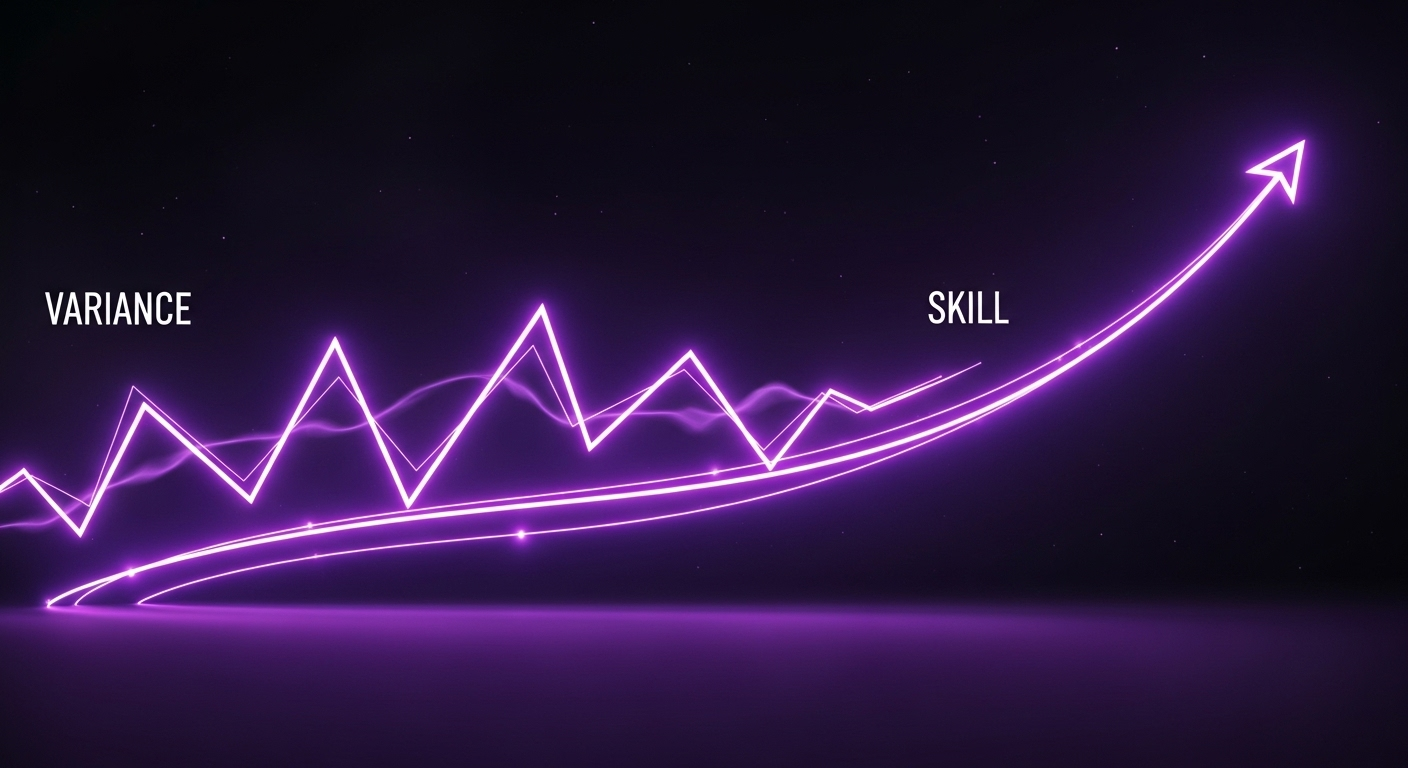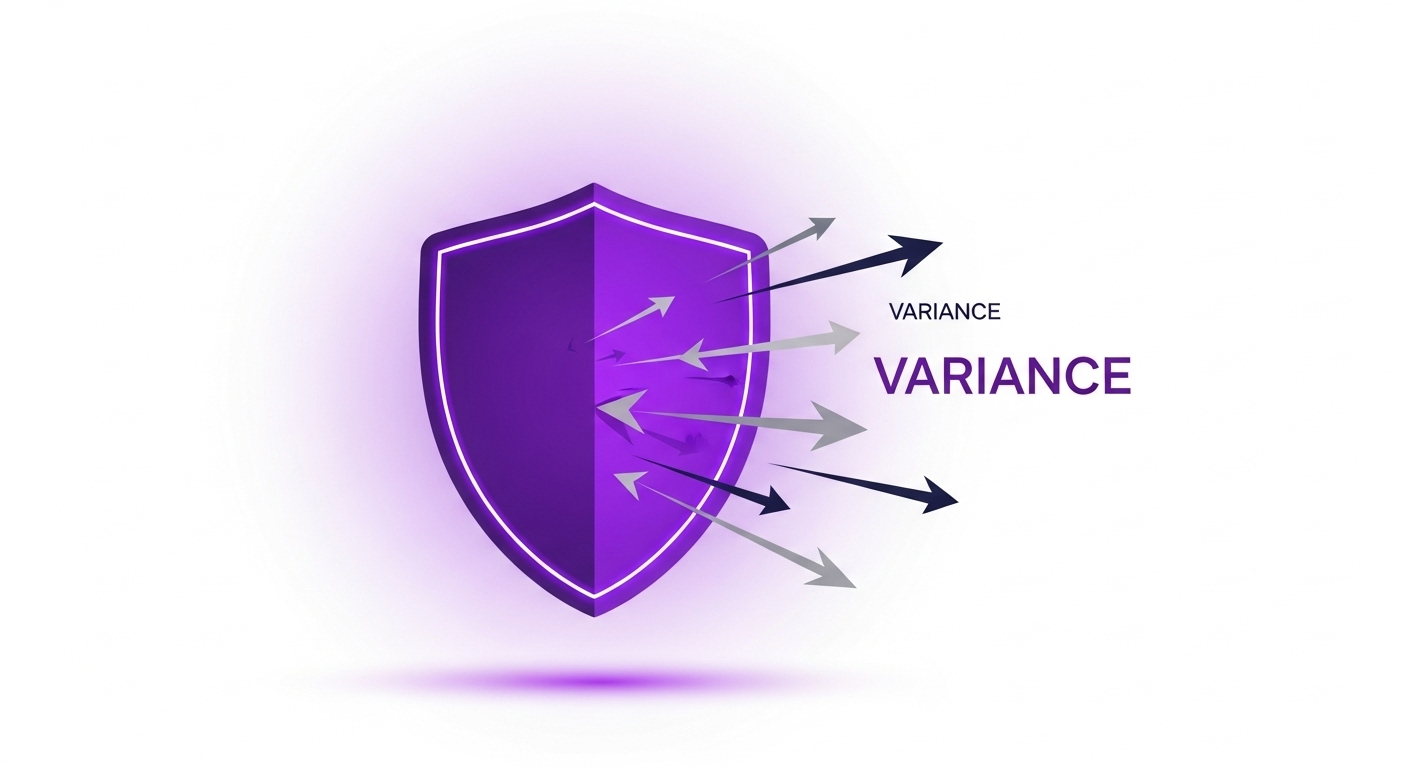Variance vs. Skill: Disconnecting Results from Decision Quality

One of the most difficult, yet most important, hurdles for any developing strategist is learning to separate the quality of a decision from its immediate outcome. You can make a mathematically perfect, +EV play and lose. Conversely, you can make a terrible, reckless move and win. The first instance is called “bad variance”; the second is “good variance.” Confusing either for a measure of skill is a fatal error.
True mastery is achieved when your emotional state and strategic confidence are tied to the quality of your process, not the randomness of short-term results. This article explores how to make that critical mental shift.
The Danger of Result-Oriented Thinking
Humans are wired to learn from outcomes. If we touch a hot stove and get burned, we learn not to touch it again. This works well for cause-and-effect in the physical world, but it fails spectacularly in environments involving probability and incomplete information.
- Winning for the Wrong Reasons: A novice poker player might go all-in with a weak hand and win because their opponent happened to have an even weaker one. This positive result reinforces a bad process, leading them to believe that hyper-aggression is a winning strategy. In the long run, this approach will drain their bankroll.
- Losing for the Right Reasons: A disciplined player might get all their money in the pot as a 70% favorite, only to lose to a lucky draw. If they interpret this outcome as a failure of their strategy, they might become timid and start passing up profitable opportunities in the future.
This is why “result-oriented thinking” is so dangerous. It causes you to abandon correct strategies during downswings and adopt flawed ones during upswings.
How to Measure What Truly Matters: Your Process
Since individual results are unreliable, you must measure the one thing you can control: your decision-making process. The goal is not to eliminate variance—that’s impossible—but to implement a strategy so sound that it can withstand variance and guarantee profitability over time.
Your process can be measured by asking objective questions:
- Was the Decision +EV? Did you have the mathematical odds to justify your action? Did you accurately assess the probabilities, potential rewards, and risks involved?
- Did I Adhere to My Bankroll Management Rules? Did you play within your predetermined stakes? Did you respect your stop-loss limits, or did emotion cause you to chase losses?
- Did I Mitigate Cognitive Biases? Did you make the decision based on logic and data, or was it influenced by loss aversion, a “gut feeling,” or the gambler’s fallacy?
This is the core purpose of GameMaster360. The platform is designed to shift your focus entirely to your process.
- The Strategy Simulator lets you verify the EV of your approach before you ever sit down at a table.
- The Bankroll Management tools provide a rigid, objective record of your adherence to your own financial rules.
- The Analytics Dashboard tracks your performance across thousands of decisions, smoothing out the noise of short-term luck and revealing the true quality of your strategy.
By consistently making +EV decisions and following disciplined bankroll management, you are, by definition, playing skillfully. The results will eventually follow. Trust the process, not the outcome.


